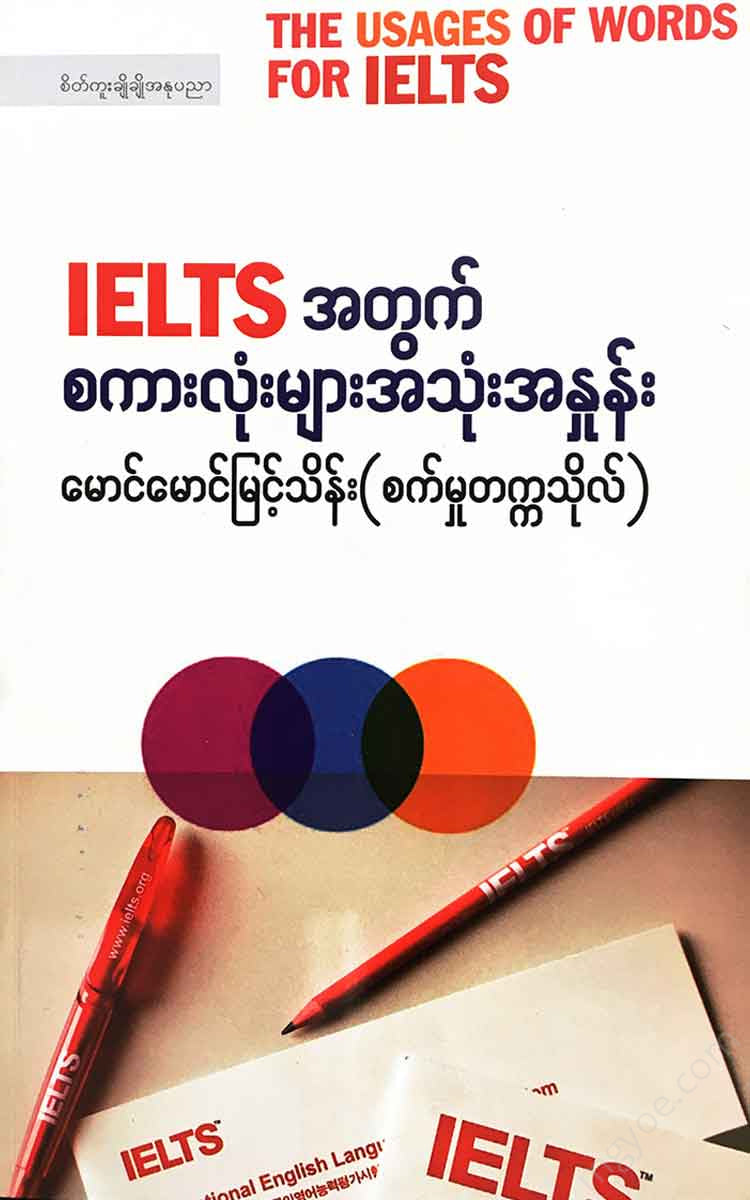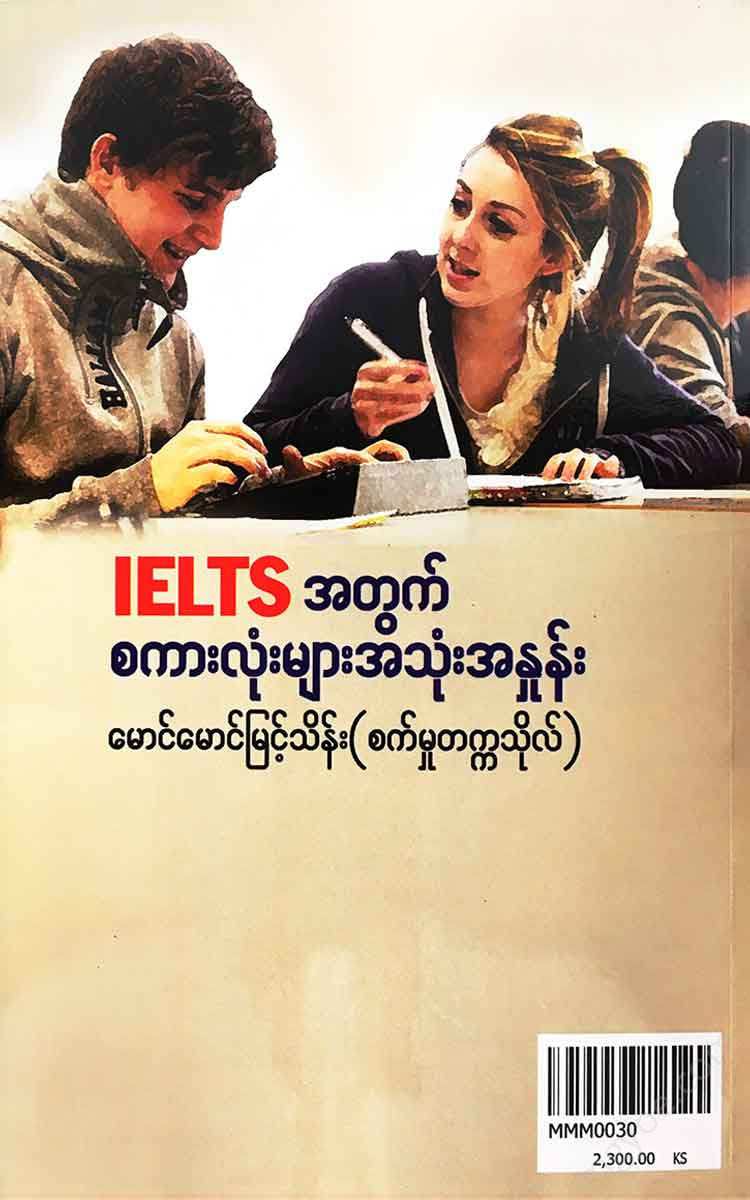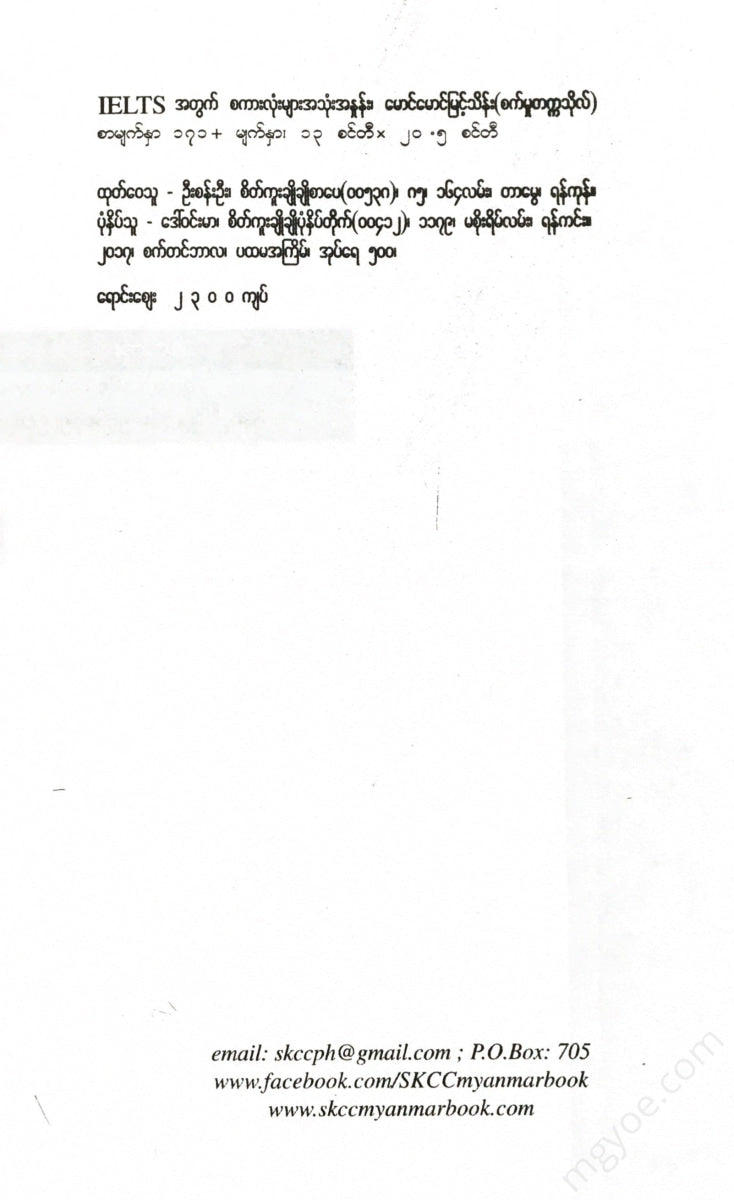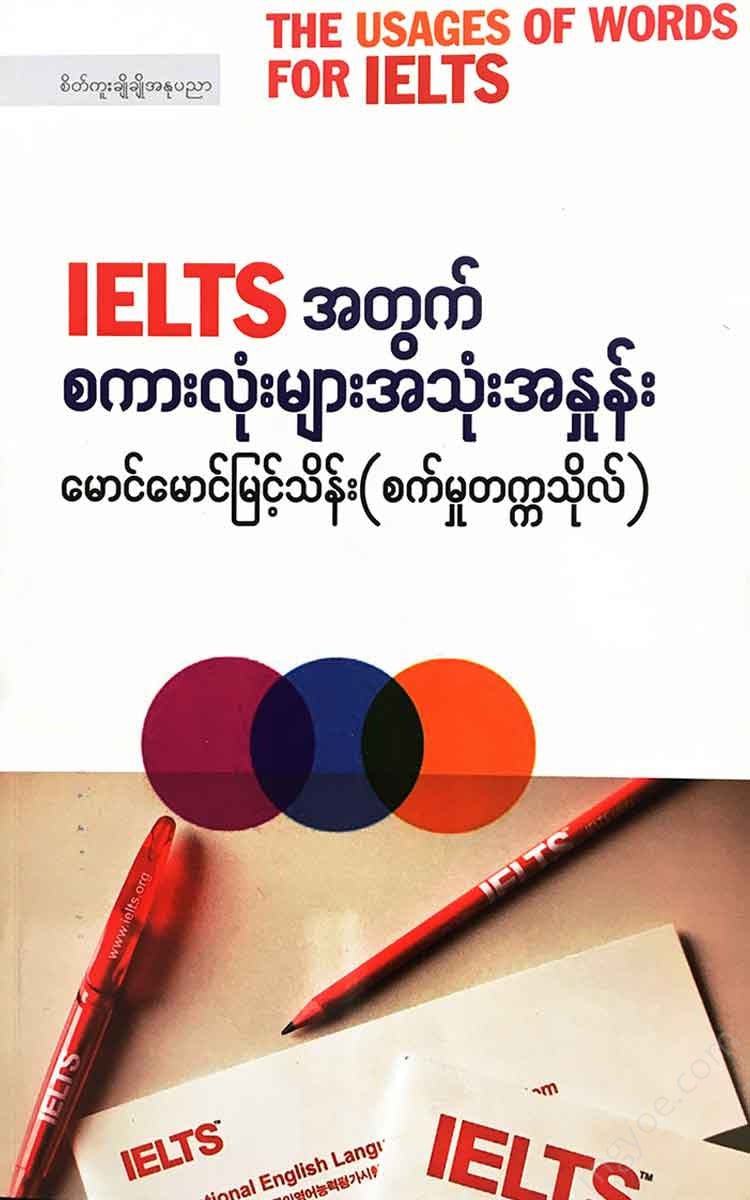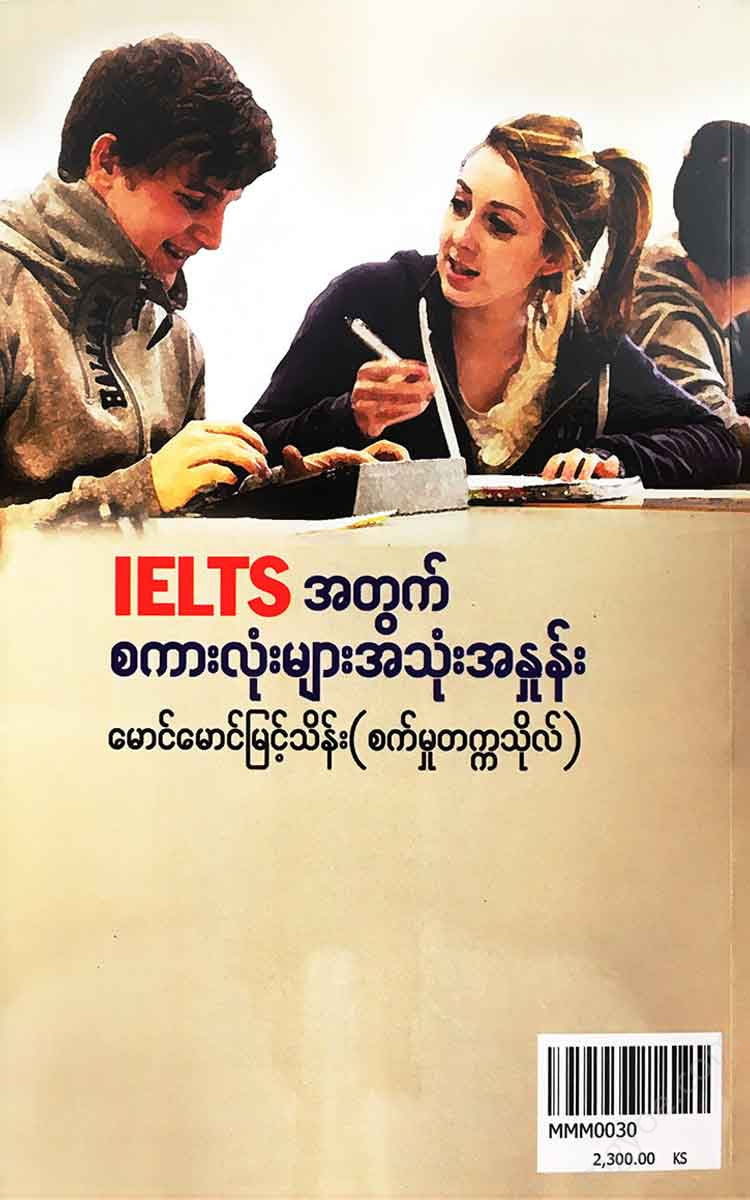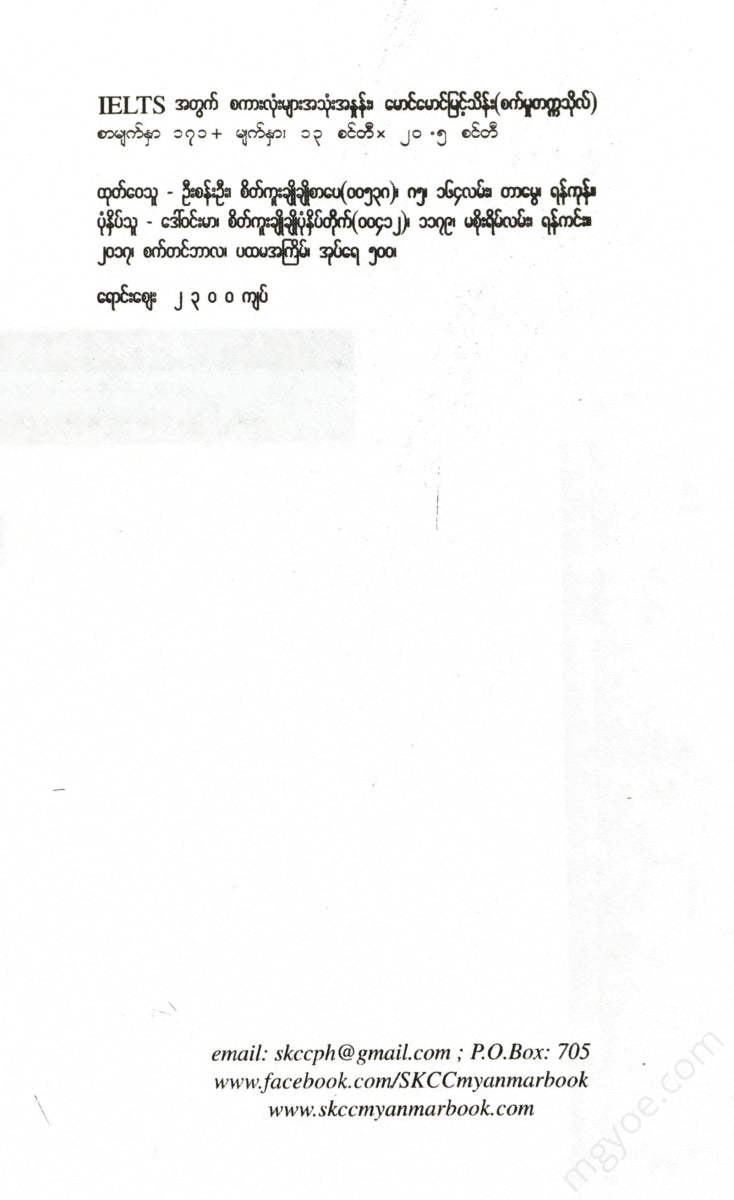စိတ်ကူးချိုချိုစာပေ
Maung Maung Myint Thein (University of Technology) - IELTS vocabulary and expressions (1)
Maung Maung Myint Thein (University of Technology) - IELTS vocabulary and expressions (1)
Couldn't load pickup availability
When taking the IELTS test, it is important to master the vocabulary, as well as the usage of words to form sentences. We have compiled a list of different usages of words to help you learn them.
Chapter (1)
- Personality and Character
Personality & Character are very closely related terms, but they are not always used in the same way.
(a) Personality means the way you act, feel, and think, especially socially. It literally means character, personality.
Open.
eg, She's always the life and soul of the party because she has such a bubbly personality.
She is always the soul of the group because she has such a cheerful personality. Personality can be used as a plural noun.
eg, I didn't get along with my business partner because our personalities clashed.
I didn't get along well with my business partner because of our personality and attitude differences.
(b) Characteristic = things that are typical or noticeable about a person or thing.
(It can be a noun or an adjective)
A characteristic is something that is distinctive or noticeable about a person or thing. This word can be used as a noun or an adjective. Characteristic can be defined as a noun that means a distinctive feature, and as an adjective, it can be considered unique.
eg Children may display characteristics of either of their parents.
Children can exhibit unique traits from either of their parents.
- Change
(a) Change is often used in the active form when it has a passive sense.
The word change is often used in the active form , although it is in the passive form .
eg, My home town has changed recently.
Our city has changed recently.
This means that you cannot use the phrase My home town has been changed recently. (passive voice)
(b) Try to use a range of adjectives and adverbs to intensity
(or) weaken the word 'change'.
Try using adjectives and adverbs to weaken or strengthen the word change.
eg (1) There was a profound change in attitudes.
There has been a profound shift in attitudes.
eg (2) Attitudes changed completely
My perspective has completely changed..
Use "Attitudes had a big change."
(C) Pay attention to the prepositions used after change.
eg (1) There has been a change in our plans.
There has been a change in our plans.
eg (2) We have made some changes to the design.
We have already made some changes to the design.
- Individuality/behaviour/originality
(a) The words individuality and behaviour are almost always used in the singular, not the plural. The words individuality and behaviour are almost always used in the singular, not the plural.
eg (1) Everyone should try to maintain their individuality.
Everyone should try to maintain their individual privacy (separateness).
eg (2) Parents are responsible for their children's behavior.
Parents are responsible for their children's behavior.
(b) Originality is used to refer to a piece of work that is not copied from others. Originality is used to refer to a piece of work that is not copied from others.
eg I don't like his style, but you have to admire the originality of his work.
I don't like his style, but you'll love the unique and interesting variety of his work.
- 4. Community
Community is often used with collocations. It can mean a social community. eg(1) rural community ( မြို့သားရ
eg(2) ethnic community
- Absolutely/ Extremely
(a) Extreme adjectives such as impossible, starving, disastrous can only be used with extreme adverbs.
eg(1) absolutely ( absolutely )
eg(2) extremely ( extremely )
eg (1) It is absolutely impossible for governments to control our dissatisfaction.
It is absolutely impossible for governments to control our grievances.
eg (2) When I was diagnosed with diabetes, they told me I couldn't eat chocolate. Which I found extremely difficult.
When I was diagnosed with diabetes, they told me I couldn't eat chocolate. That was extremely difficult for me.
(b) 'Extremely' is used with the same kind of adjectives as very and so is not an extreme adverb.
Extremely is no longer an adverb when used with some similar adjectives, such as very and so . Most adjectives which can be used with 'very' can also be used with highly, slightly and extremely.
Most adjectives that can be used with very can also be used with highly, slightly , and extremely.
eg (1) We found that the acidity of the soil was slightly lower than the week before.
We found that the soil's acidity was slightly lower than last week.
eg (2) The coastline has been spoiled by the illegal dumping of highly toxic industrial waste.
The coastline has been damaged by the illegal dumping of highly toxic industrial waste.
